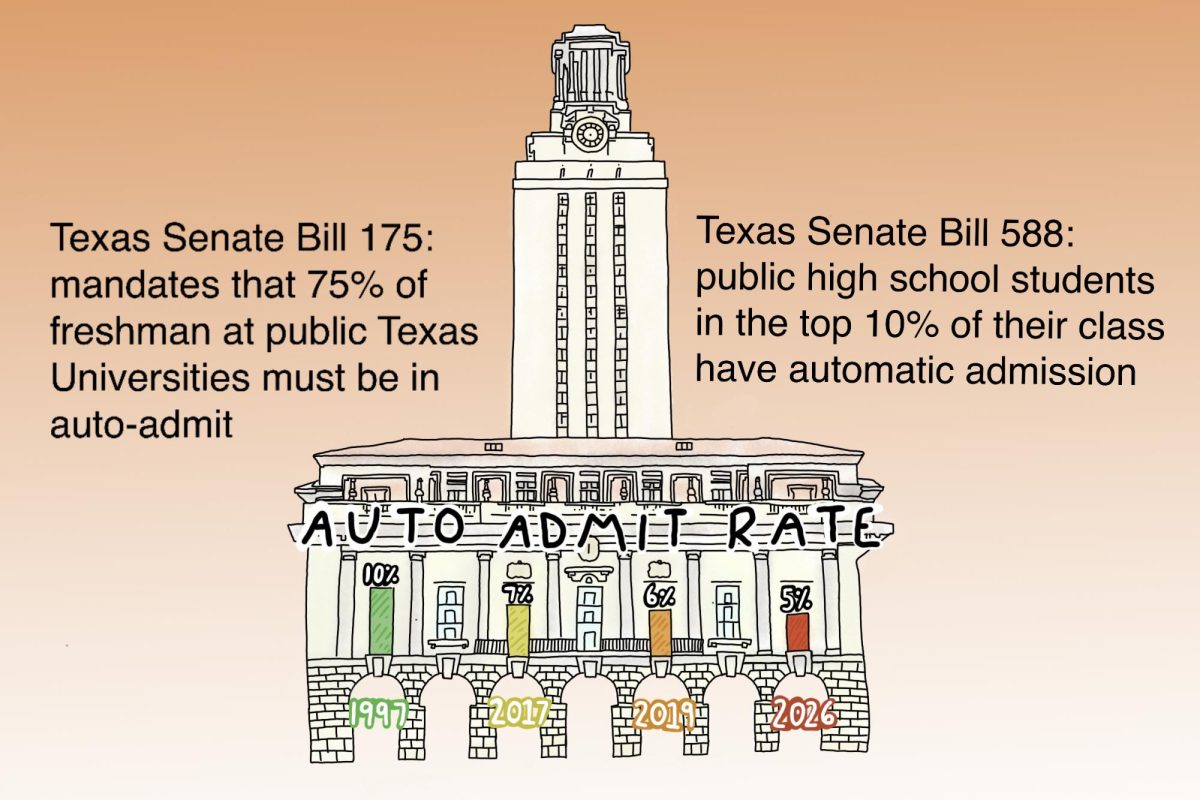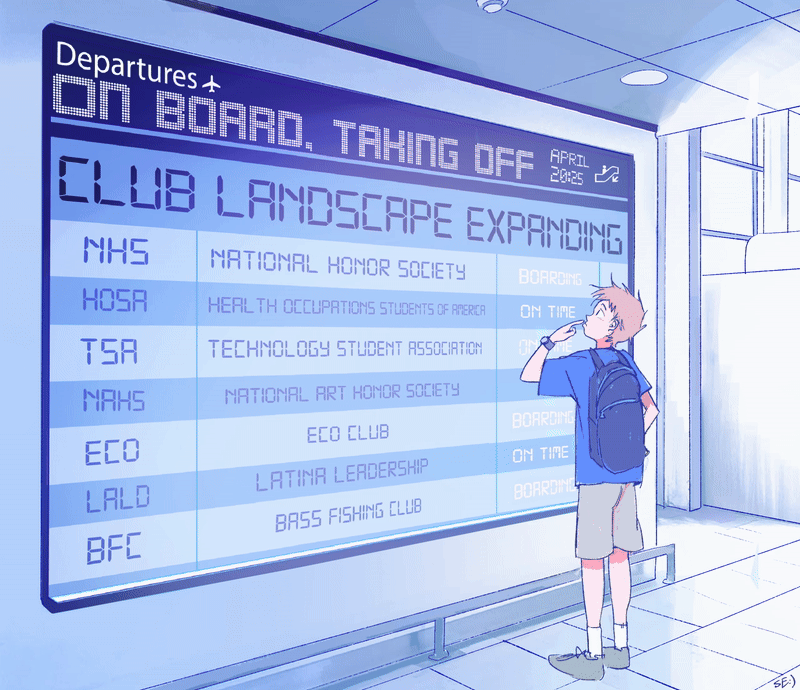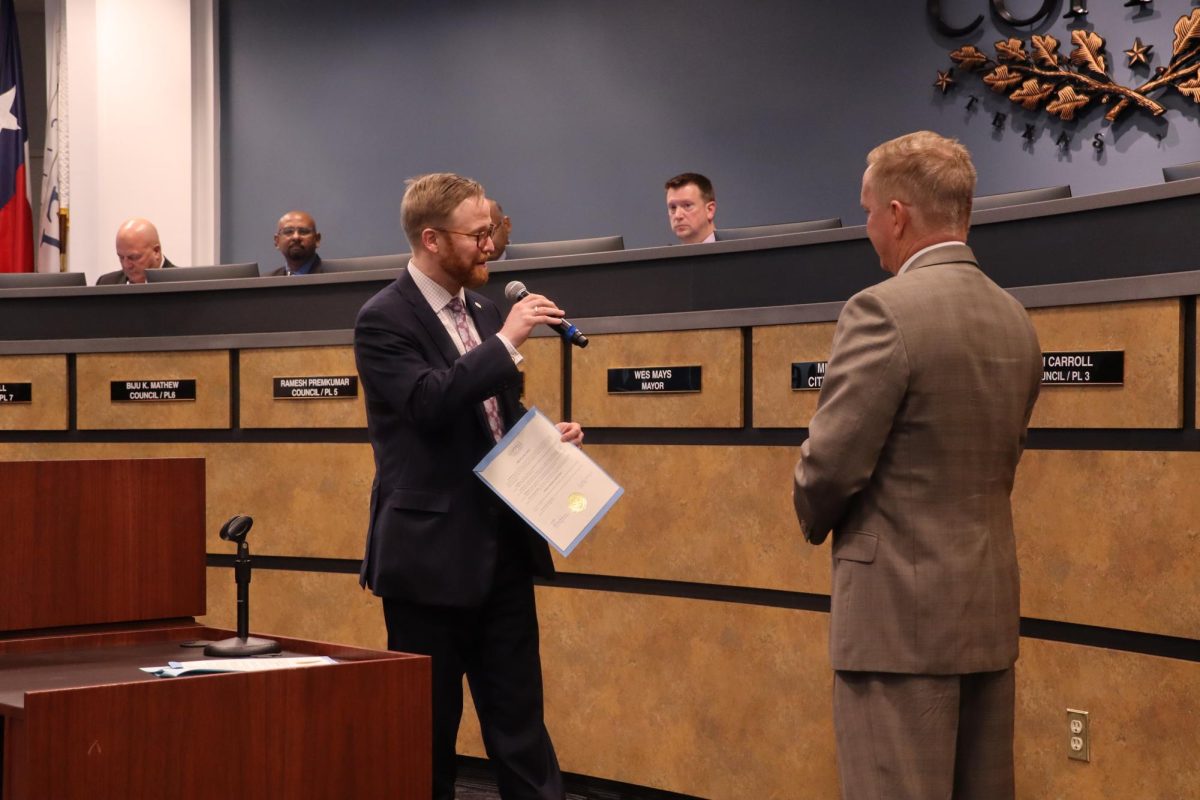
Hundreds of students wager sleepless nights and hours of studying for a place in the top 6% of their high school class, earning them an automatic admission to the University of Texas at Austin.
However, a change in policy puts many students’ efforts in jeopardy.
UT, one of the top universities in the state and in the nation, will drop its automatic admission percentage from 6% to 5% starting with the high school class of 2026. This change was made to adhere to certain Texas laws.
In 1997, Texas passed House Bill 588 mandating the top 10% of every public Texas high school’s class be guaranteed admission to any public Texas university, intending to increase diversity among college students. In addition, Texas Senate Bill 175 passed in 2009 requires 75% of freshmen students at public state schools be in-state and automatically admitted.
UT dropped its automatic admission to only accept the top 7% in 2017, further dropping to the top 6% in 2019, and now the top 5%. This drop creates implications for future high school classes in regards to UT’s competitive admission standards.
Parallel to changing admission criteria, Coppell High School students have taken on more rigor in their academics. College competitiveness has motivated much of the student competition, so much so that in 2010, CHS stopped ranking past the top 10%.
Even with an increase in competition, UT remains a highly desirable school for Coppell students. According to KCBY-TV adviser Irma Lazos-Kennedy, the wide array of connections and research opportunities UT makes it a top-ranked college in the nation.
“It’s always been a heavily academic school, and it has just gotten more competitive because everyone understands it is a world-class university,” Lazos-Kennedy said.
The auto-admit on such a coveted university can affect underclassmen’s attitudes toward UT applications. Sophomore Ravali Mocharla thinks this change will affect her class’ mindset towards admissions and increase pressure towards being a high-achieving academic student.
“You see kids around you getting those perfect grades, and you compare yourself to them, and we have to understand that we have to only compare ourselves to ourselves,” Mocharla said.
With changing academic standards, Mocharla takes a different approach to studying.
“Last year I would stress if I thought about grades left and right but this year I’ve adopted a different mindset,” Mocharla said. “My best is my best and that’s enough. Not that I won’t strive to get the best grade I possibly can, but I want to always prioritize my health, physical and mental, over half of a point because at the end of the day or in 15 years, it’s not worth it.”
For junior Harshvardhan Vinoth Kumar, the drop may force some to extremes such as cheating.
“Such malpractices might not have happened if the bar was not placed that high,” Kumar said. “If you are merited to go to [a prestigious university], you should go to that university. But if those merits are to be collected by cheating, then maybe the university in itself is not the best fit for you.”
Lead counselor Ann Cinelli proposes this drop will not have much effect on the difficulty of getting into UT. While the amount of people being holistically reviewed might increase, the chances of acceptance for each individual remain relatively the same in regards to the amount of students UT can accept.
The decrease in automatic-admission rate may make students feel as though they cannot have a good college experience outside of UT, but it is important to keep an open mind.
“UT is not the only school,” Mocharla said. “Texas A&M University, University of North Texas and Texas Christian University are fabulous schools with great programs that can really be the best for you.”
Follow @CHSCampusNews on X.











Nrithya Mahesh • Oct 22, 2024 at 6:42 pm
Great story, Akshaya!